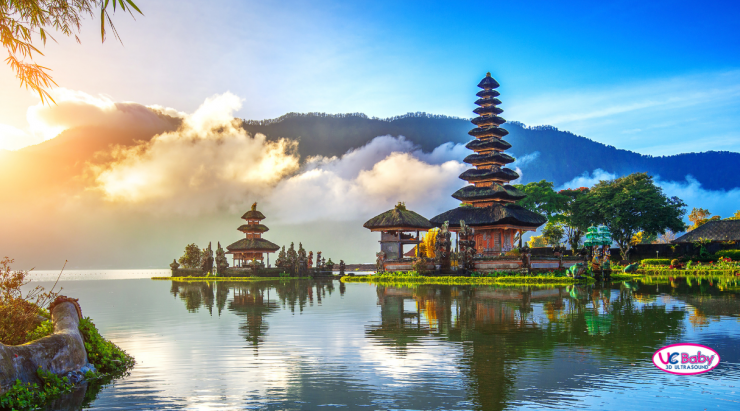Bali is an Indonesian Island in the Indian Ocean. The majority of the population has baby birth traditions specific to the island. Balinese people have unique customs related to birth and how babies are treated afterwards. They practice certain ceremonies for the placenta, umbilical cord, and cutting of the baby’s hair.
This blog series will examine the unique traditions that communities observe when they have a tiny new arrival.
What are the popular baby birth traditions in Bali, Indonesia?
Baby birth traditions are some of the most beautiful customs around the world. One of Canada’s most remarkable features is its multicultural makeup. We may have modern practices in celebrating a baby’s coming to the family, such as baby showers and gender reveal parties. However, the influences of some diverse customs from around the world may still be present and observed by the older generations of grandparents.
Burying the Placenta (Ari-Ari)
The placenta is a part of a vital ritual after a baby is born. It is considered a brother or sister to the new baby. The placenta is placed in coconut and wrapped in linen after being washed thoroughly. A mantra is recited, and pandan leaves are enclosed with it as it is buried outside the family home or compound to protect from evil. This spot is honoured throughout the baby’s important milestones as it is considered a part of the baby.
Umbilical Cord Falls Off (Kepus Pungsed)
When a baby is three to seven days old, the umbilical cord falls off. Another ceremony takes place where the cord is placed in a container made of coconut leaves. The people of Bali practice this ceremony because they believe that the cord has special healing powers.
Baby Touches the Ground (Nyambutin Ceremony)
Babies are considered divine beings and are thus, treated in a certain way at the beginning of their lives. For the first three months of their lives, they are not allowed to touch the ground. Babies are precious and therefore must be carried by friends, neighbours and relatives.
On the 105th day, a ceremony takes place that symbolizes their entrance into the world of the living. A priest blesses the child, and the parents circle the holy water three times carrying the baby. Afterwards, they put water on the baby’s feet. It is then that the baby’s feet are allowed to touch the ground for the first time. The Nyambutin Ceremony is the most significant and meaningful ceremony of a child’s life.
Cutting your Baby’s Hair (Ngotonin)
Many cultures have rules about when to cut their children’s hair. Bali also has a special ceremony that occurs at six months old. They cut the baby’s hair is to release sins from a previous life. The cultural belief is that reincarnation occurs, and they need to cut their hair to appeal to the heavens.
The addition of a new baby is memorable for all cultures. The start of a new life is a miracle, and different cultures express that through varied baby birth traditions. It is a beautiful experience to be able to see that expression take place.
REFERENCES:
Bali Nyabutan Ceremony: Baby First Touches the Mother Earth
In Bali, Babies Are Believed Too Holy to Touch the Earth
Check out our Baby Birth Tradition blog series – Baby Birth Traditions – China
Written by: Gabrielle Goldson





 Invite families and friends to witness this memorable event of your pregnancy. Celebrate that special child-bonding moment with your loved ones, wherever they are in the world.
Invite families and friends to witness this memorable event of your pregnancy. Celebrate that special child-bonding moment with your loved ones, wherever they are in the world. There is nothing more beautiful than your baby's heartbeats. Save that sound forever in a UC Baby® Heartbeat Bear®. It's not just a great keepsake, but also an effective way to sooth your baby to sleep.
There is nothing more beautiful than your baby's heartbeats. Save that sound forever in a UC Baby® Heartbeat Bear®. It's not just a great keepsake, but also an effective way to sooth your baby to sleep.

